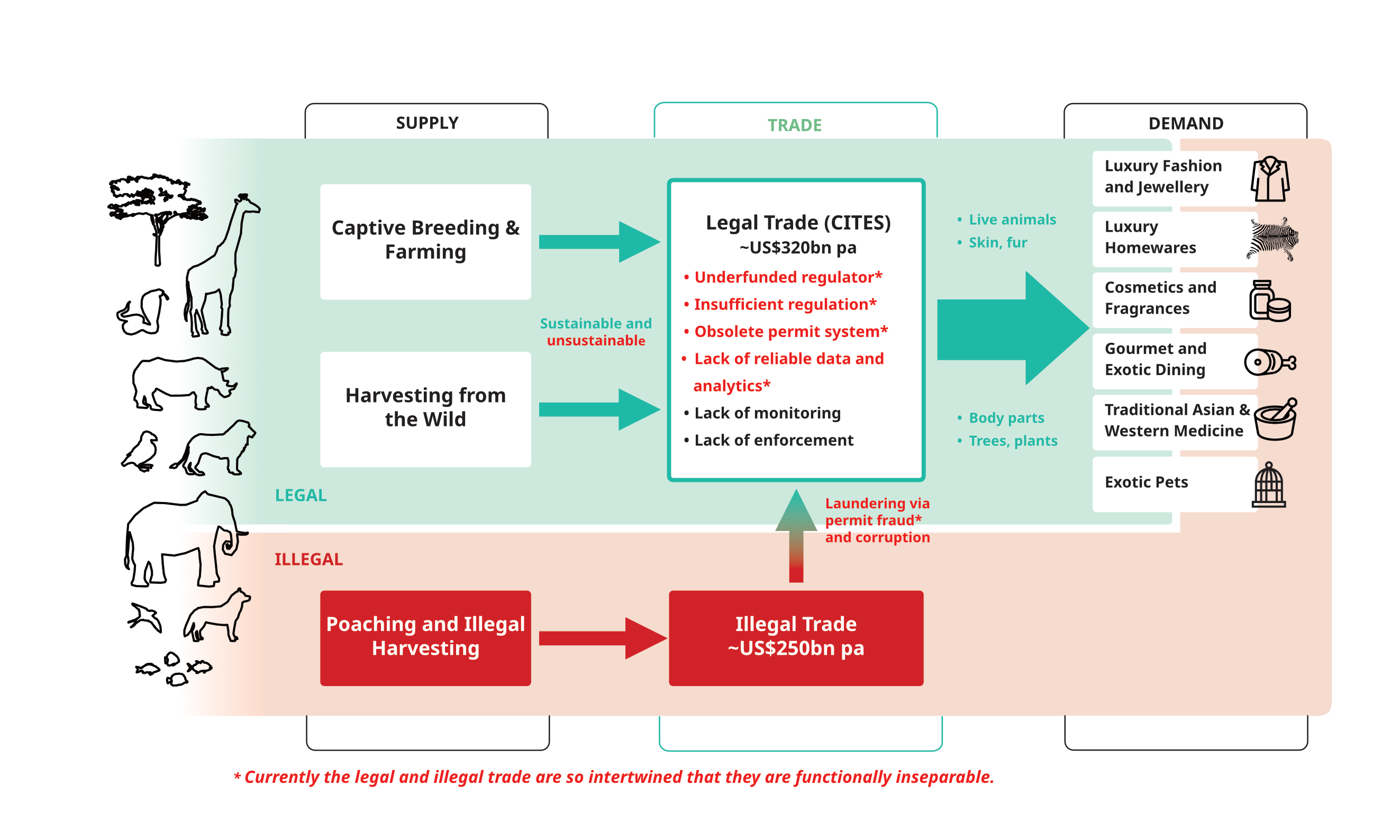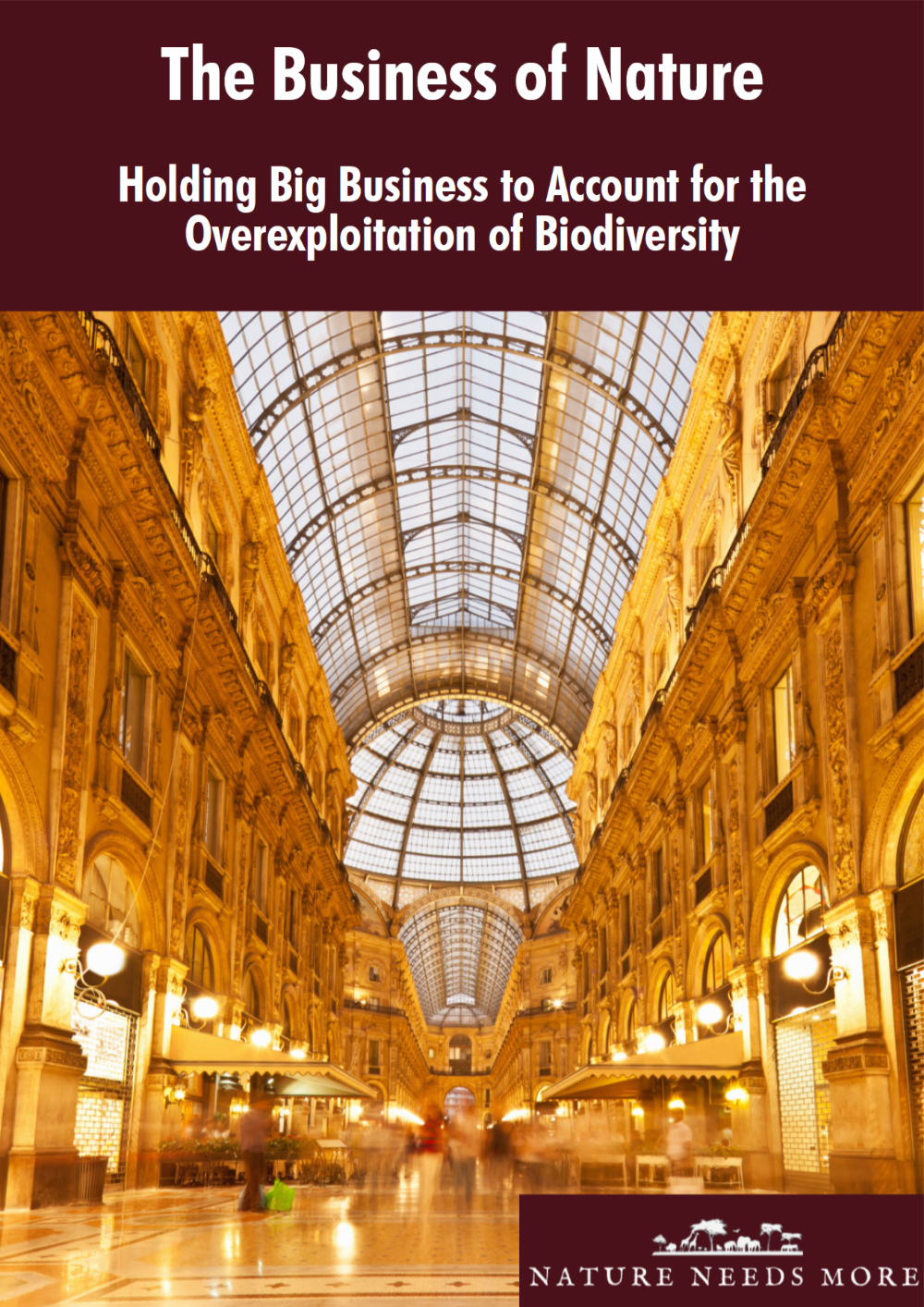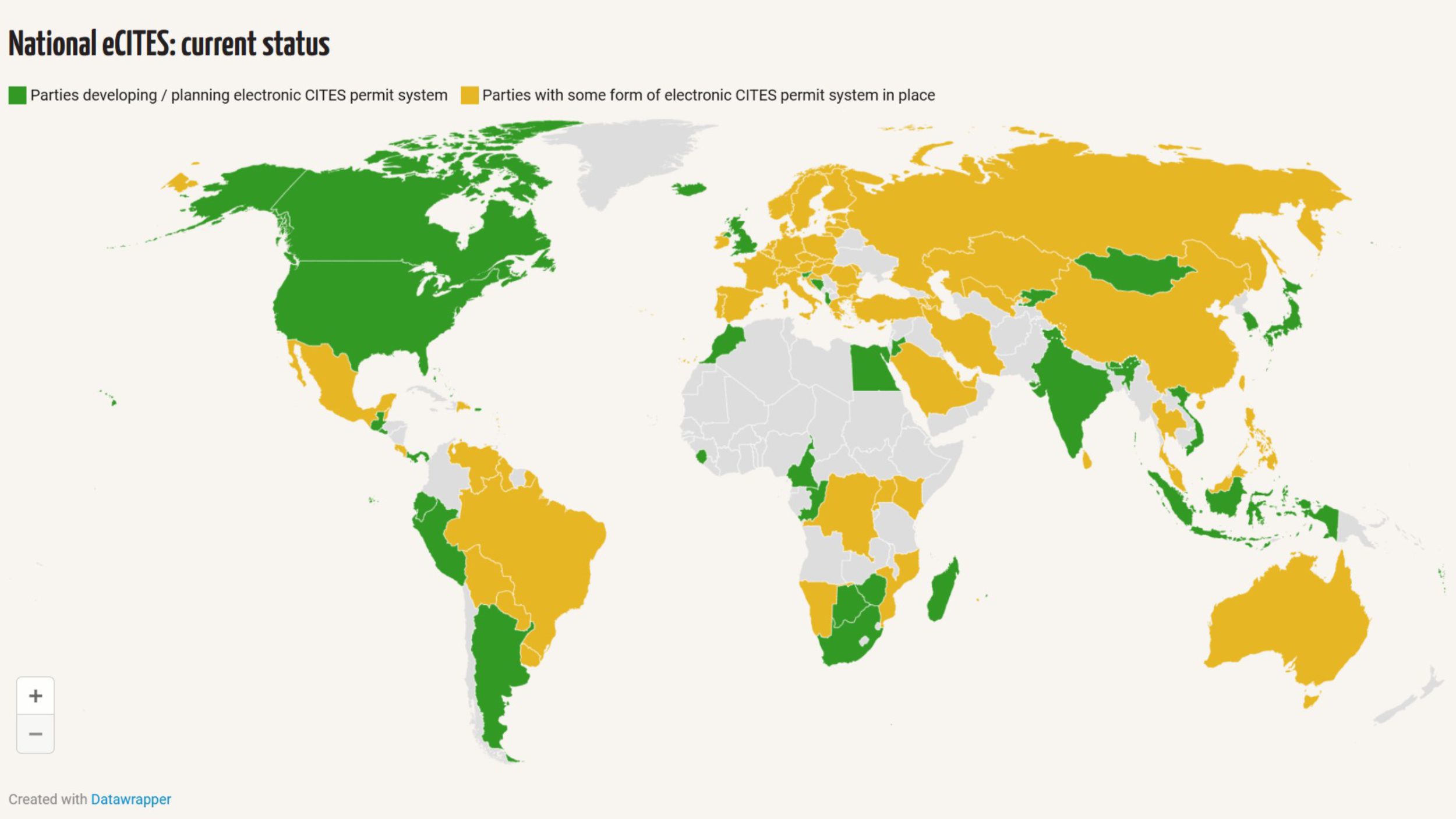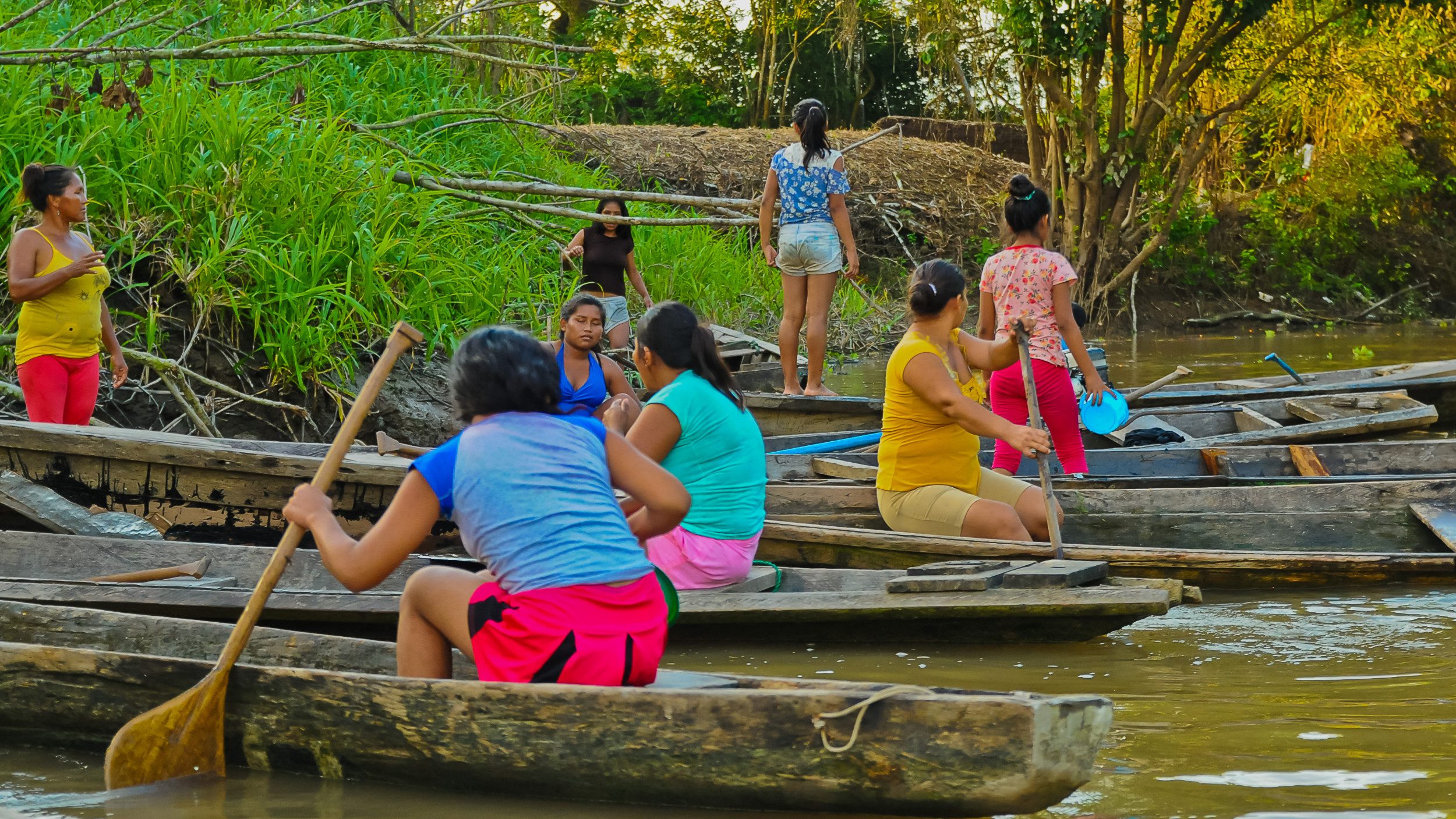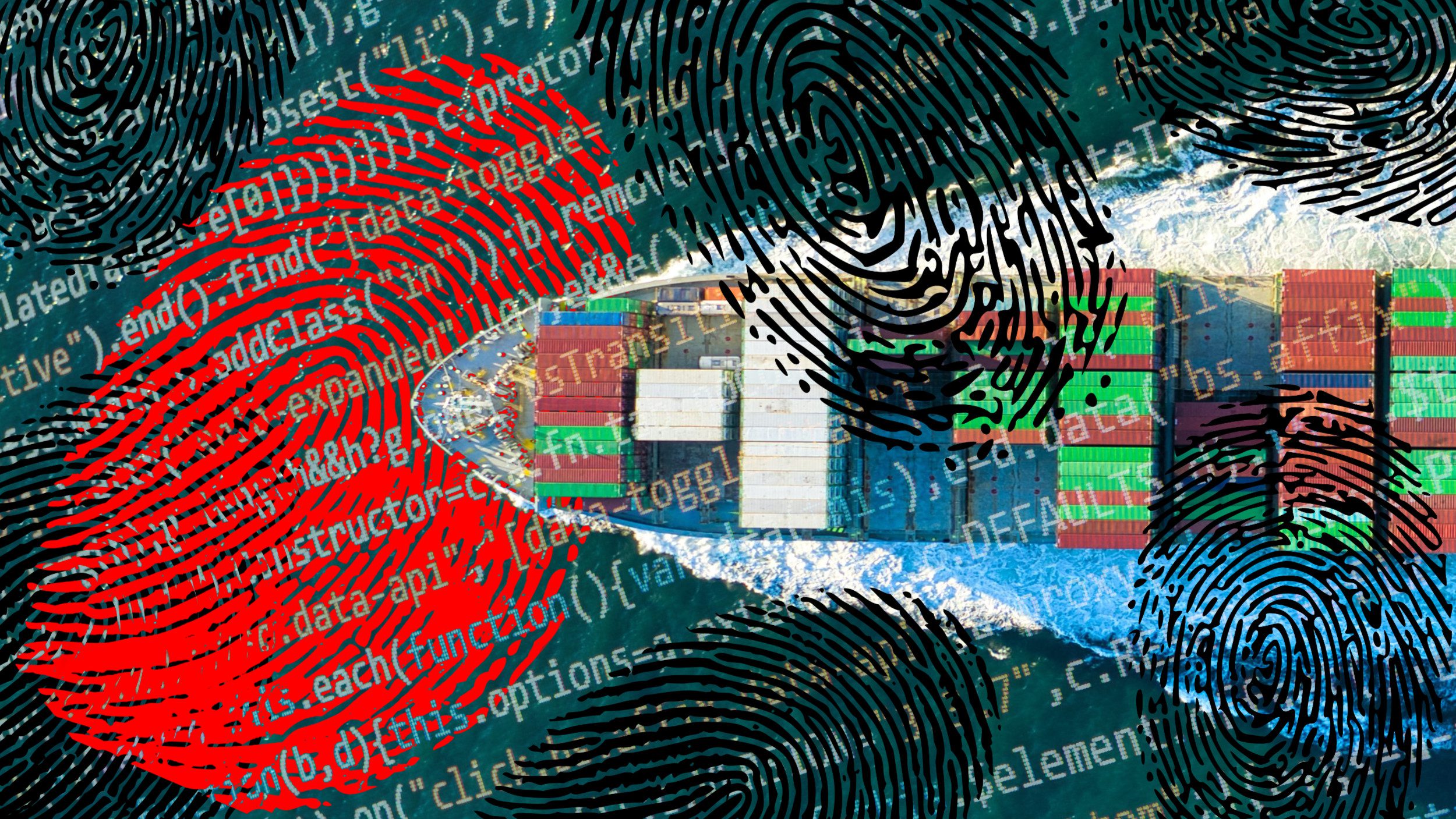The Extinction Crisis
The global biodiversity crisis is accelerating, and international trade is a primary driver, threatening species with extinction. After more than 50 years of discussions, one of the most lucrative trades in the world is unsustainable, and either poorly regulated or not regulated at all. The lack of investment in supply chain transparency means businesses that use wild species as their raw materials can’t prove their offtake is sustainable.
The IPBES established that trade is the biggest extinction risk for marine species and the second biggest risk for terrestrial and freshwater species. It further established that international trade is the major culprit for unsustainable extraction, not community use or local trade. The legal trade in wildlife has been allowed to fly under the radar for decades.
Nature Needs More is an Australian registered charity committed to curbing this destruction through better regulation of the trade in wild species.
The legal international trade in endangered species is facilitated by CITES, the Convention on the International Trade in Endangered Species of Flora and Fauna. CITES was designed in the late sixties and came into force in 1975. Today it regulates the trade in over 40,000 species.
Yet, despite its vast remit, CITES has had only one strategic review in its 50-year history, back in 1994. It has had minimal investment, with over 160 of its 183 signatory countries still using the 1970s paper-permit system to facilitate trade.
Today it is far too easy to launder illegal product into legal supply chains. After seafood, fashion and furniture are the biggest users of, and profiters from, the trade in wild species. Sustainability is oversold; without the corresponding transparency, sustainability is just an ideology and not a strategy.
There is no evidence that CITES can effectively regulate this trade, as monitoring and enforcement are chronically underresourced. As a result, the legal and illegal trade are so intertwined that they are functionally inseparable.
After initially working on the illegal trade in wild species, in 2018 Nature Needs More concluded it is impossible to tackle illegal trafficking without first modernising the CITES regulator. Only then can the legal and illegal trade be decoupled.
What We Do
Nature Needs More is unique in that we investigate both the legal and illegal trade in endangered species to recommend systemic solutions that will reverse the unsustainable exploitation of nature. We consider the role of business, investors, regulators, consumer desire and the impact of prevailing economic narratives that are driving the observed rapid increase in trade.
Fixing the well-known flaws in the legal trade mechanism has the potential for a huge positive impact for the survival of endangered species in a very short time frame because there are existing regulatory solutions that can be adopted from other industries. In contrast, the extinction threat from land use and habitat loss related issues will take decades to address, but the legal trade system can be fixed by 2030.
Nature Needs More is working to reform the system through a series of strategic initiatives:
1. Lobby national CITES authorities, NGOs and IGOs to push for the adoption of electronic CITES permits by all signatory countries to reduce instances of fraud and to improve data collection. Since we started in 2018, the number of countries that have implemented electronic permits has increased from 2 to 20.
2. Push for a business contribution to the cost of regulation under CITES. Currently businesses are free riding despite the vast majority of the trade in CITES listed species falling under luxury products (luxury seafood, luxury fashion and luxury furniture extensively utilise CITES listed species such as glass eel, sharks, python, crocodile and tropical hardwood).
3. Lobby for a strategic review of the CITES convention and the future adoption of a positive (reverse) listing model. The current (black) listing model adopted by CITES in 1973 only protects species already proven to be endangered and is no longer workable with over 40,000 listed species. It has made enforcement impossible even in rich countries.
Our work also includes investigating what is motivating consumer demand for wildlife products and testing new models that do not rely on continuous economic growth and exploitation of nature for profit. This includes redirecting the desire to consume endangered species to other ways of gaining status.
We pioneered demand reduction campaigns for rhino horn based on the insights of behavioural science, anti-smoking campaigns and road safety campaigns. Nature Needs More continues to create innovative behaviour change campaigns, from our Wildlife Trade Honesty Ads to consumer magazine, HowToSpendItEthically.Org, events such as Extinction: the Vulgarity of Desire and news site, GlobalBreakdown.News to improve knowledge and understanding of consumption, business, geopolitics and more driving the extinction crisis.

